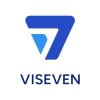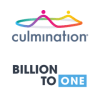Dive Brief:
- Sales of Gilead's flagship cell therapy Yescarta totaled $118 million from July to September, slightly less than what the biotech recorded in the second quarter and below Wall Street expectations.
- Executives noted how, broadly, more CAR-T eligible patients are enrolling in clinical trials than receiving commercial products like Yescarta, cautioning that quarterly sales could vary moving forward.
- Yescarta and Kite Pharma, the CAR-T developer bought by Gilead for $12 billion two years ago, are central to Gilead's ambitions in oncology. Analysts on Wall Street, however, are skeptical the complex technology can deliver the growth Gilead needs following rapid sales declines for its hepatitis C business.
Dive Insight:
Once a breakthrough novelty, CAR-T cell therapy has become a more common feature of treating relapsed leukemia and lymphoma.
Gilead's Yescarta (axicabtagene ciloleucel) and Novartis' Kymriah (tisagenlecleucel) remain the only two products approved for commercial use, but more and more cancer patients are beginning to receive the drugs outside of clinical testing.
Yet the challenges standing in the way of selling the expensive, individualized therapies remain, while new competition has added another option for patients who have failed other, earlier treatments.
For Gilead, such questions fuel doubts its purchase of Kite will pan out how it envisioned when it bought the cell therapy leader two years ago.
Third-quarter sales that show flat growth quarter over quarter won't help, either.
After strong growth from the first quarter to the second, sales declined by $2 million in the period from July to September.

"We continue to see quarterly variations in Yescarta, but we're very confident in its future and the long-term trajectory of our cell therapy platform," said Daniel O'Day, Gilead's new CEO, on a call with investors Thursday afternoon.
O'Day, along with other Gilead executives, noted competition in Yescarta's market has increased, and pointed to clinical trial usage among lymphoma patients as a headwind to commercial CAR-T.
"We ... observed CAR-T eligible patients being enrolled in clinical trials at a much higher rate relative to commercial patients," said Gilead's Chief Financial Officer Robin Washington on the call.
In June, Roche won U.S. approval for and launched its cancer drug Polivy (polatuzumab vedotin), which could challenge CAR-T as a treatment choice for patients previously treated with two or more prior therapies.
Gilead executives didn't give details on the call of Polivy's potential impact to Yescarta, beyond noting that it remains "early days" for the Roche drug's launch.
Yet other developments, such as increased reimbursement for Medicare patients, should be helping fuel Yescarta sales.
"The company cited a number of contributing factors to Yescarta's performance (increased reimbursement, improved long term outcomes data, increased centers, initial use in European centers), all of which we would have expected to result in increased, rather than flat, revenue," wrote SVB Leerink analyst Geoffrey Porges in a Oct. 25 note to investors.
The upcoming annual meeting of the American Society of Hematology should be a forum for Gilead to present new data supporting Yescarta. A study testing the therapy in earlier lines of treatment is now fully enrolled, giving the company a potential path toward treating more patients.
O'Day hinted, too, that investors should expect more from the company on its plans in oncology.
"There are opportunities certainly that we can look at outside of cell therapy, and complementary to cell therapy," he said.
"As we go into next year, we'll be laying out deeper and deeper our holistic strategy around oncology that will include cell therapy, but not only cell therapy."















